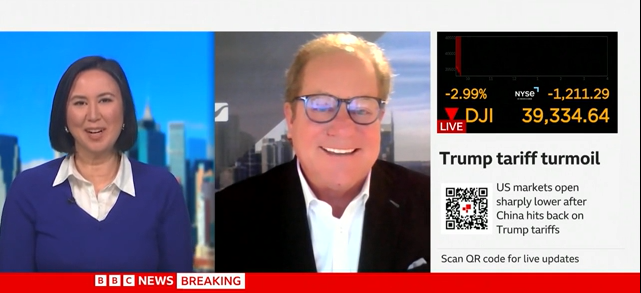Phoebe Venable: Anchoring can sink investment wealth
March 28, 2014
Most equity investors enjoyed exceptional returns last year, with the Standard & Poor's 500 index returning approximately 30 percent. Since the stock market doesn't move upward in a straight line, equity investors shouldn't be surprised by the flat to negative returns experienced thus far this year. But it seems many investors find the recent market activity to be surprising, even irrational.
Applying a logical thought process to investing is harder than it seems.
Behavioral finance is a relatively new area of financial study, but it has been receiving more and more attention from both investors and financial advisers. It is a combination of psychology and finance that tries to explain certain features of the securities markets as well as investment behavior. Most of this body of knowledge focuses of explaining the irrational behavior of investors.
If investors only behaved rationally and logically, fear and greed would never impact the market. But feelings and emotions do impact investment decisions, and our decision-making can be flawed by what psychologists call "anchoring." Anchoring describes a shortcut the brain takes when approaching complex problems. The brain selects an initial reference point — the anchor — and makes small changes as additional information is received and processed, as opposed to evaluating all of the information each time new data is received. With anchoring, the brain has the simpler task of revising a prior conclusion.
A used-car salesperson always starts negotiations with a high price. This is an attempt to get the customer anchored on the high price so that when a lower price is offered, the customer will think it represents a good deal. For investors, recent prices or the recent total account value may serve as a similar psychological anchor. After the stock market rose 30 percent last year, investors who anchored the value of their portfolios at that high year-end valuation (high-water mark) may feel they lost money during the market dip. But a loss is only incurred when securities are sold for less than their cost. The downward movement over the last several months is not a loss. It is simply the current change in the market value of the portfolio.
Understanding the role of anchoring in the decision-making process can help investors avoid some pitfalls. "Bottom fishing" is the practice of buying stocks that have fallen significantly, assuming the price is cheap. The bottom-fishing investor believes the recent high price is evidence of value; that is, the investor has anchored on the high price. This practice can be dangerous to your wealth.
Anchoring can lead investors to hold losing positions too long and sell improving stocks too soon. The effect of a recent price as a psychological anchor makes losers appear cheap and winners seem to have gotten ahead of themselves. Understanding when the brain is anchoring on a price or portfolio valuation will help investors avoid bad decisions and maybe even reduce emotional stress and anxiety about short-term price changes.
Phoebe Venable, chartered financial analyst, is president and COO of CapWealth Advisors LLC. Her column on women, families and building wealth appears each Saturday in The Tennessean.
The information presented in any video or blog is the opinion of CapWealth Advisors, LLC and does not reflect the view of any other person or entity. The information provided is believed to be from reliable sources, but no liability is accepted for any inaccuracies. This is for information purposes and should not be construed as an investment recommendation. Past performance is no guarantee of future performance. CapWealth Advisors, LLC is an investment adviser registered with the U.S. Securities and Exchange Commission.
The product, services, information and/or materials contained within these web pages may not be available for residents of certain jurisdictions. Please consult the sales restrictions relating to the products or services in question for further information. For other CapWealth Advisors’ disclosures, click here.
This website may contain links to third-party websites. These links are provided solely as a convenience to you and do not imply an affiliation, sponsorship, endorsement, approval, investigation, verification, or monitoring by CapWealth Advisors, LLC (“CapWealth”) of the contents on such third-party websites. CapWealth is not responsible for the content of any website owned by a third party that may be linked to this website regardless of whether the link is provided by CapWealth or a third party. CapWealth does not prepare or maintain, has not and will not review or update, and does not guarantee the accuracy, timeliness, completeness, suitability, reliability, or usefulness of any information contained on a linked third-party website. If you decide to access linked third-party websites, you do so at your own risk. Furthermore, no representation or warranty is provided for any software that you may download from a link from this website.
All Content. CapWealth Advisors, LLC













